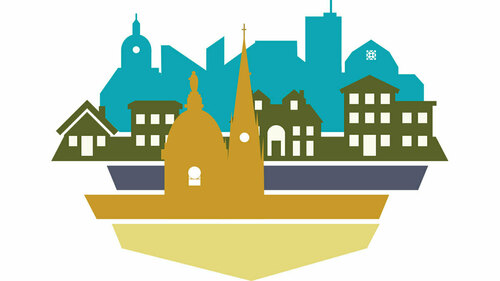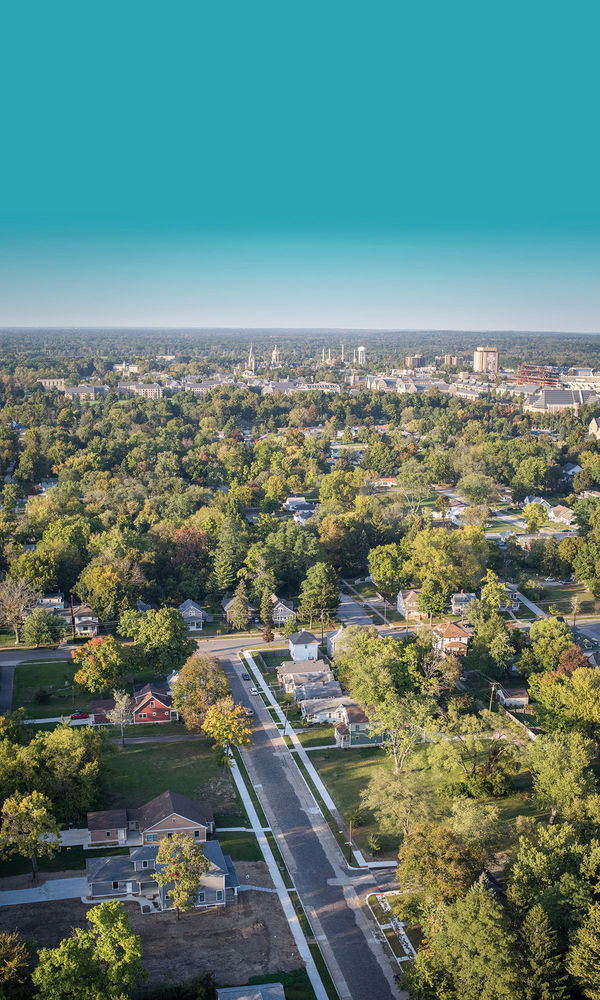
The University of Notre Dame’s impact on the region through its operational and capital investments; research spending; spending by students, visitors and event attendees; and increased wage premium earned by graduates is $2.46 billion annually, according to a newly released economic impact study. The report draws from the most recent available data from fiscal year 2017.
Every five years, Notre Dame measures its impact on the local economy. As a major regional enterprise and through its mission of education, research, faith and community service, the University is an integral contributor to the economic vitality of the city of South Bend, St. Joseph County, surrounding counties and the state. With Notre Dame’s growing partnerships throughout the area, this year’s study expands its reach to measure the University’s effect on the region including St. Joseph, Elkhart and Marshall counties.
“Notre Dame’s economic and cultural impact is growing beyond South Bend to incorporate the broader region,” said University President Rev. John I. Jenkins, C.S.C. “This growth reflects Notre Dame’s partnership with the thriving South Bend-Elkhart region — a place for robust employment and cultural life beyond the boundaries of the University. Notre Dame’s success can be measured in part by how well our neighbors flourish.”
The University’s impact is also credited with supporting 16,700 jobs in the region.
Other significant figures from the economic impact report show:

- $1.2 billion annual operations budget with 7,500 University employees including faculty, staff and postdoctoral and graduate students.
- $271 million — the three year average (2015-2017) in capital expenditures, which includes new construction, major renovations and large-scale maintenance projects.
- $256 million in total impact of event participant spending from athletic, alumni, educational and cultural events. This output supports nearly 2,500 jobs annually.
- $138 million — research funding received in 2017, with nearly 60 percent of that funding being spent within the region.
- $92.8 million — ancillary spending by students and visitors in the region for annual events such as move-in and move-out weekends, Junior Parents Weekend and Commencement.
- $43 million in procurement spending with minority, women, veteran-owned or small businesses.
- $52.3 million in state tax revenue. Although Notre Dame is a nonprofit entity, the fiscal impacts generated by operations, wage premium, student and visitor spending, event spectator spending and capital investment are substantial. This tax revenue helps to support various government jurisdictions and helps fund essential public services and public education.
- $26.4 million — the impact for each home football game weekend. Overall, football game visitors generate an estimated $185 million per year in economic impact within the region, supporting 1,700 jobs (based on seven home games). It is estimated that approximately 660,000 visitors during football weekends spend $133 million per season on lodging, food, transportation and retail purchases. On average, 100 private planes fly through South Bend per game during home football weekends.
A new segment in this year’s report, called wage premium, highlights the impact of high-earning-potential individuals who circulate their household earnings into the local economy. The study shows approximately 10,000 Notre Dame alumni live in Indiana. This translates into $76 million in aggregate annual wage premium associated with Notre Dame alumni in the statewide workforce.
Notre Dame’s economic impact report was prepared by Econsult Solutions Inc., a consulting firm that provides businesses and public policymakers with services in urban economics, real estate economics, community and neighborhood development and more.
The full report and executive summary are available at publicaffairs.nd.edu/impact.